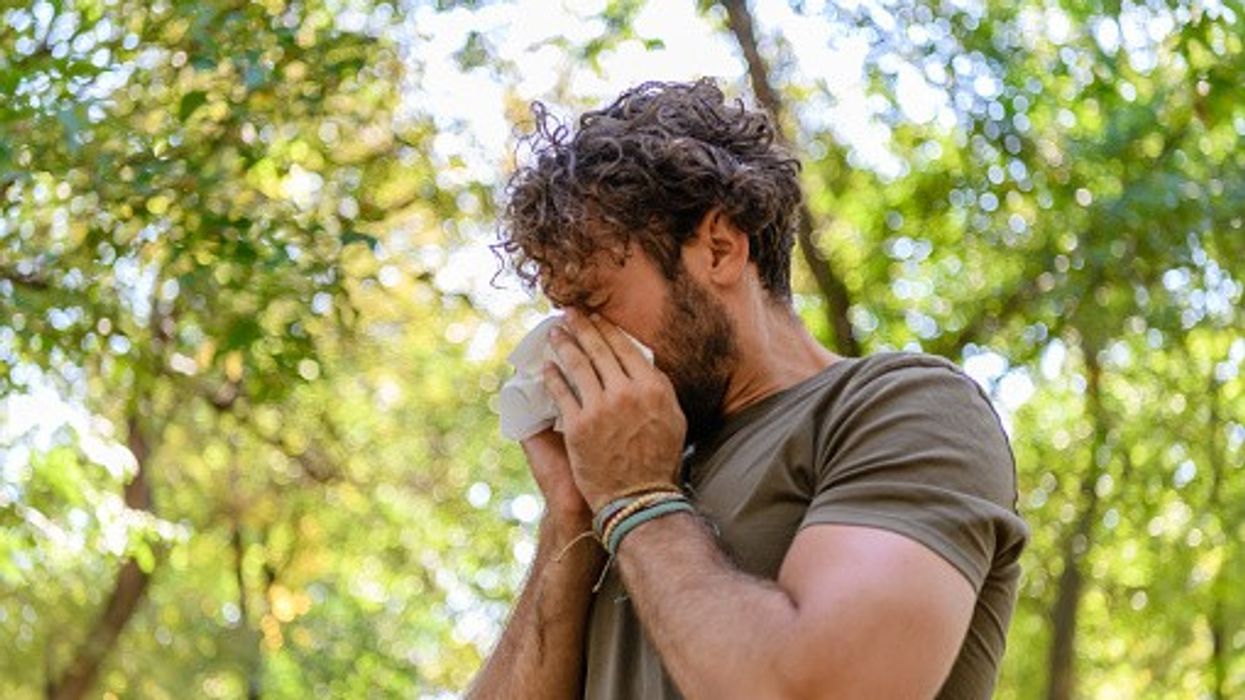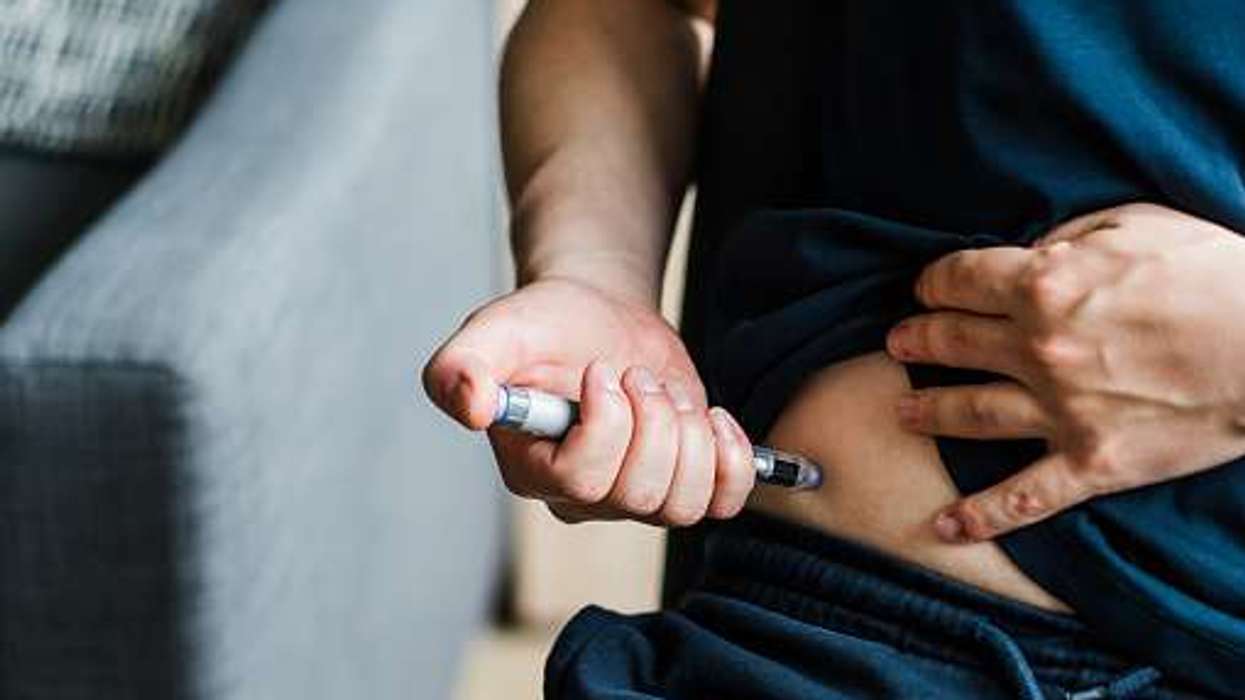With a tree pollen bomb set to hit the UK this week, millions are bracing for the annual spike in hay fever symptoms. However, contrary to popular belief, it is not grass pollen that’s surging right now. In fact, the primary culprit of allergic reactions during spring is tree pollen.
According to pharmacist Mital Thakrar at Well Pharmacy Online Doctor, understanding the differences between these pollen types can help sufferers manage their symptoms more effectively.
"Tree pollen, particularly birch pollen, tends to be the most aggressive allergen in spring, affecting up to 25% of hay fever sufferers in the UK, with white ash and elm following closely behind," explains Thakrar.
"Each pollen type can cause slightly different symptoms, with birch typically leading to severe eye irritation, while ash and elm often trigger more respiratory complaints."
What is causing my seasonal allergies?
“A lot of people don’t realise that although grass pollen is typically the most common cause of hay fever, it doesn’t peak until early summer. Therefore, many confuse it with tree pollen, which is the main culprit in early spring. So, if you’re sneezing and dealing with itchy eyes in March or April, tree pollen is likely to blame. But if your allergies hit hardest in May, June, or July, grass pollen could be the trigger.”
What is a pollen bomb?
“The term ‘pollen bomb’ relates to when a sudden rise in temperature causes trees and plants to release large amounts of pollen all at once. This can make hay fever symptoms much worse, as the spike exacerbates pollen levels. A ‘pollen bomb’ also means that different types of pollen, like grass and tree pollen, can be released together, triggering stronger reactions.
“If you suffer from hay fever, you might notice more intense symptoms such as more sneezing, itchy eyes, congestion and even asthma flare-ups. Although less common, there are some more surprising symptoms of hay fever, such as excessive sweating and loss of taste and smell. As the pollen count rises, it’s important the public recognise these unusual symptoms.”
Unusual symptoms of hay fever
Although less common, there are some more surprising symptoms of hay fever, such as excessive sweating and loss of taste and smell. As the pollen count rises, Thakrar cautions the public to be aware of these unusual symptoms:
- Excessive sweating
“Sweating more than usual can be an embarrassing symptom of hay fever. Excessive sweating can be caused by stress, pain or when your immune system is vulnerable - all factors which can occur in hay fever.”
2. Loss of smell and taste
“Although less common, loss of smell can be a symptom of hay fever. Also known as anosmia, inflammation in the nasal passages can impact our sense of smell. This is the body’s way of limiting the amount of pollen that reaches the nose.
“As taste and smell are linked, if you experience anosmia, you are also likely to notice some loss of taste too.
“Of course, a loss or change in your sense of taste or smell is a symptom of COVID-19. Therefore, you should consider testing or staying at home and avoiding contact with others if you also have a high temperature or do not feel well enough to carry out normal activities.”
3. Headaches and migraines
“There is also a link between headaches and hay fever. Sinus inflammation can cause a build-up of pressure which results in a sinus headache. This tends to feel as if there is intense pressure inside the head or behind the eyes.
“The histamines released during a hay fever account can also give rise to migraines.”
4. Face pain
“Many people don’t realise that hay fever can cause pain around the cheeks, eyes and forehead. When you have hay fever, the small air-filled cavities behind the cheekbones and forehead can become inflamed or blocked. This pressure can cause facial pain.”
5. Asthma
“If you have asthma, you may find hay fever worsens symptoms like wheezing and breathlessness. In fact, some people also find they only experience asthma symptoms during hay fever season.
“People with hay fever are also much more likely to develop asthma.”
Tips for managing spring allergies
"The key to managing spring allergies is preparation," explains Mital Thakrar. "Taking preventative measures before pollen counts peak can significantly reduce the severity of symptoms."
- Beginning antihistamine treatment before symptoms appear
"Starting antihistamines about two weeks before allergy season begins can build up protection in your system and prevent symptoms from taking hold."
2. Investing in an air purifier
“An air purifier can be a great investment. It helps remove pollen and other allergens from indoor air, reducing sneezing, congestion, and itchy eyes. Look for one with a HEPA filter for the best results, and keep windows closed during high pollen days to maximise its effectiveness."
3. Monitoring local pollen forecasts daily
"Checking pollen counts each morning allows you to plan outdoor activities strategically and adjust medication timing when counts are expected to spike. The Met Office provides an upfront five day pollen forecast, including which type of pollen is predicted to be high. "
4. Changing clothes after spending time outdoors
"Pollen particles cling to fabric and can continue to trigger symptoms for hours, so changing clothes after coming inside is like removing a mobile allergen source."
5. Wearing wraparound sunglasses to protect eyes
"Wraparound sunglasses create a physical barrier that helps prevent pollen from reaching the sensitive conjunctiva of your eyes, reducing itching and redness."
For those experiencing severe reactions, consultation with a GP may be necessary to discuss prescription-strength remedies.












